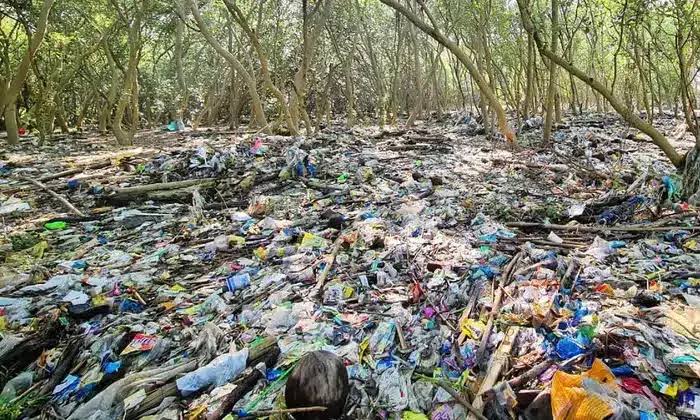Igbinedion varsity, stakeholders bemoan plastic waste pollution menace

By Abdullahi Lukman
Stakeholders in Edo State’s environment sector have called for urgent and coordinated efforts to address the growing menace of plastic pollution, warning that it threatens public health, biodiversity, and sustainable development.
The call was made during an event organized by Igbinedion University, Okada, to commemorate World Environment Day 2025, held under the global theme “Ending Plastic Pollution.”
The event brought together policymakers, academics, environmental practitioners, and civil society representatives.
In his address, Edo State Commissioner for Health, Dr. Cyril Oshiomhole, emphasized the public health risks of plastic waste, linking it to rising cases of cancer, infertility, and other non-communicable diseases.
He urged Nigerians to adopt the “Seven Rs of Plastic” — Rethink, Refuse, Reduce, Reuse, Repair, Recycle, and Recover — to reduce plastic consumption and waste.
“This year’s World Environment Day reminds us that plastic pollution is not just an environmental issue but a public health emergency,” Oshiomhole said.
“Government alone cannot tackle this crisis. We need civil society, the media, the private sector, and citizens to act together.”
Oshiomhole also warned about the harmful impact of plastic waste on the environment, including soil degradation, contamination of water bodies, and harm to aquatic life.
Delivering the keynote speech, Professor Lawrence Ezemonye, Vice-Chancellor of Igbinedion University and President of the Institute of Environmental Practitioners of Nigeria (IEPN), described plastic pollution as a global crisis with long-term consequences for human health, climate stability, and ecosystems.
“Plastic production and waste disposal significantly contribute to greenhouse gas emissions,” he said.
“If we fail to act now, emissions from plastics could account for as much as 13% of the global carbon budget by 2050.”
Ezemonye noted that IEPN has begun regulating environmental professionals in Nigeria to ensure ethical practices and promote sustainable waste management.
He welcomed national policy efforts, including the National Plastic Waste Control Regulation of 2024, the Extended Producer Responsibility (EPR) programme of 2023, and the recent ban on single-use plastics, but stressed that lasting change depends on public participation.
“The real transformation will come when individuals and institutions take ownership of the problem,” he said.
The vice-chancellor also highlighted the threat plastic poses to marine ecosystems, noting that an estimated 8 to 10 million tons of plastic enter oceans annually.
“Microplastics not only threaten marine biodiversity but also reduce oceanic photosynthesis, worsening climate change,” he added.
Other speakers included the Permanent Secretary of the Edo State Ministry of Environment and Sustainability, Mr. Jude Ekpu, and Prof. Joseph Nmazi of Igbinedion University’s Faculty of Law.
Both called for stricter enforcement of environmental laws and intensified public education campaigns to change consumer behavior.
They also advocated for eco-friendly alternatives and a transition toward a circular economy, where products and materials are reused and recycled rather than discarded.
The event concluded with renewed commitments to environmental advocacy, regulatory reform, and inclusive action aimed at preserving Nigeria’s ecosystems for future generations.
